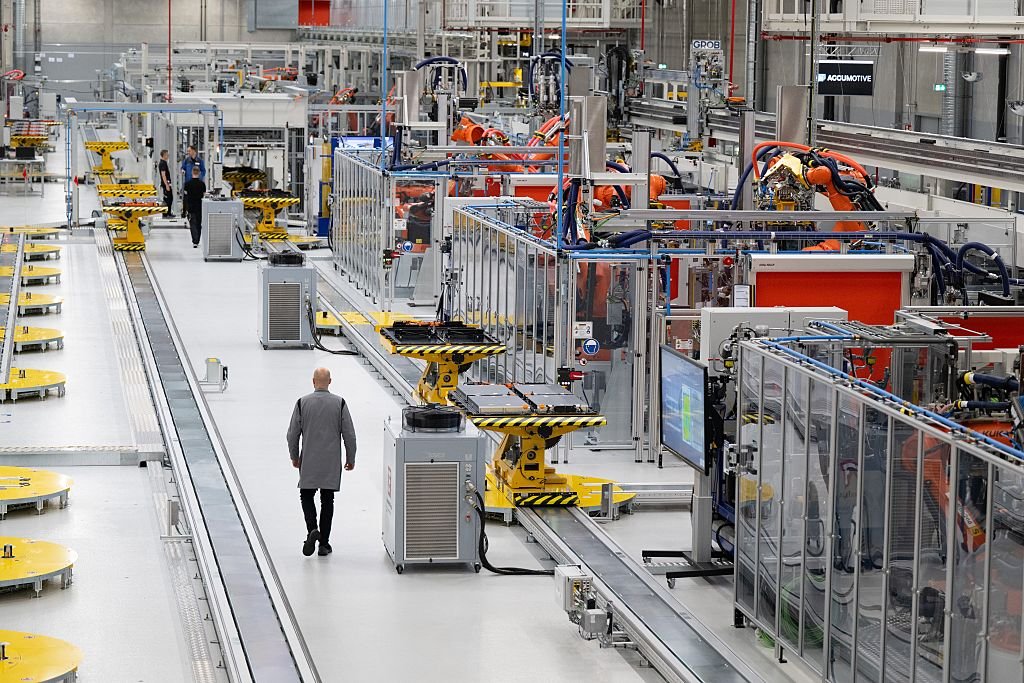Ben Schroeter is Director of Economic Policy at Booking.com.
Once hailed as a beacon of postwar reconstruction, social cohesion, and industrial excellence, Europe now finds itself watching the technological future unfold from the sidelines.
From AI to semiconductors, from cloud computing to social media platforms, Europe – despite its talent, wealth, and history – is falling behind. The question is not whether Europe is innovative or capable. It is. The question is: Why can’t Europe compete?
One could point to obvious culprits: risk-averse investment cultures, fragmented markets, a lack of homegrown tech giants, and slow-moving regulatory bodies. But there is something deeper, a philosophical rigidity which Paul Krugman once described as holding back post-reunification Germany. It’s the ghost of Immanuel Kant: his categorical imperative this time not just haunting Berlin, but also Brussels, Paris, and the wider EU.
Europe doesn’t lack engineers. It lacks boldness. Not ideas, but permission to will them into existence.
This gap between potential and performance isn’t due to indifference or a lack of effort. There are brilliant AI researchers in Zurich and Paris. Stockholm and Amsterdam have vibrant startup scenes. Estonia digitised its government while much of the U.S. still runs COBOL on mainframes. And yet when scale-up time comes, European startups often move west to raise capital and grow.
There is a moral philosophy underlying Europe’s economic posture, a kind of deontological discipline that puts what should be done over what works. Privacy is sacred, big companies are suspicious, and consumer protection is gospel. These are not bad instincts. Indeed, in an age of data abuse and corporate overreach, they are often admirable. But good instincts aren’t enough – what matters is how they’re implemented. Principle without pragmatism paralyses. In trying to shield society from harm, Europe too often ends up shielding itself from progress.
Take the GDPR. It was an earnest and important attempt to protect citizens’ data – but also a compliance nightmare that ossified digital innovation. Or the AI Act – an ambitious attempt to make AI safe, ethical, and transparent. Laudable in theory, but in practice it risks choking startups with bureaucracy before they ever write a line of code. The EU will soon have 27 AI regulatory authorities but few leading AI companies.
It’s not that Europe regulates. It’s how it regulates. The European model is defined by a dense, layered system – one that favours exhaustive rulemaking over adaptive principles. It seeks to anticipate every possible scenario, offering detailed guidance that often confuses more than it clarifies.
The result? Companies are overwhelmed by precise but paradoxically ambiguous instructions, forced to navigate complexity instead of being empowered to exercise judgment. This approach stifles initiative, burdens innovation, and creates uncertainty not through the absence of rules, but through their overabundance.
Europe’s devotion to stability, order, and rules-based systems once delivered miracles. But in the 21st-century tech economy, ambiguity is the rule, not the exception. Disruption is chaotic. Innovation breaks things. Unicorns are messy.
Kant would not approve. But Schumpeter might.
To compete in this era, Europe needs to be more forgiving – of failure, of success, of inequality. It needs flexibility in regulation, boldness in investment, and perhaps most controversially, a touch of American-style pragmatism. As Paul Krugman wrote in 1999: “Americans are philosophically and personally sloppy: they go with whatever seems more or less to work.” In a time of rapid technological change, trial and error may be a better guide than the maxim that all your actions should be fit to become universal laws.
This doesn’t mean abandoning Europe’s values. It means reframing them for the digital age. Privacy must be protected – not by clinging to outdated mechanisms like cookie banners, but by pioneering smarter, embedded forms of consent that empower users without exhausting them.
A fair economy depends not just on regulation, but on ensuring transformative technology diffuses rapidly, enabling businesses of all sizes to compete effectively. And an open, democratic internet requires platforms with global reach – capable not just of competing, but of countering authoritarian influence and disinformation.
The challenge is not to compromise values, but to make them competitive – to ensure that European ideals aren’t just preserved but projected through leadership in the technologies shaping our future.
If Europe needs a new categorical imperative, it should be this: Act on the principle that your companies must not only endure but scale, lead, and set global standards. Build frameworks others will want to follow. Embrace ambition, celebrate moonshots, and allow for the inevitable missteps that come with bold innovation.
Europe can compete. But first, it must let go – at least a little – of the Kantian comfort of rule-bound certainty. The tech frontier isn’t orderly. And it’s not waiting.





